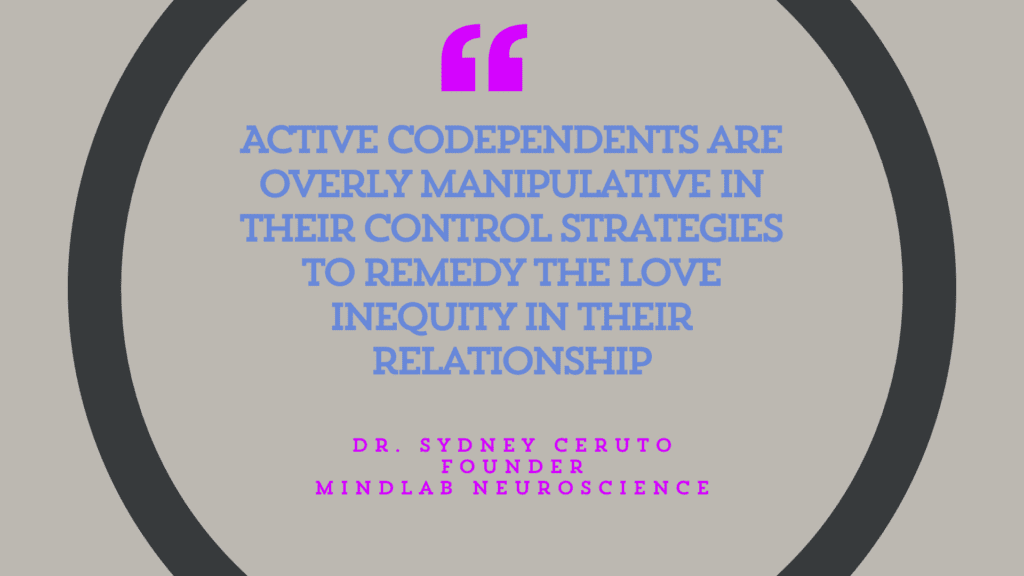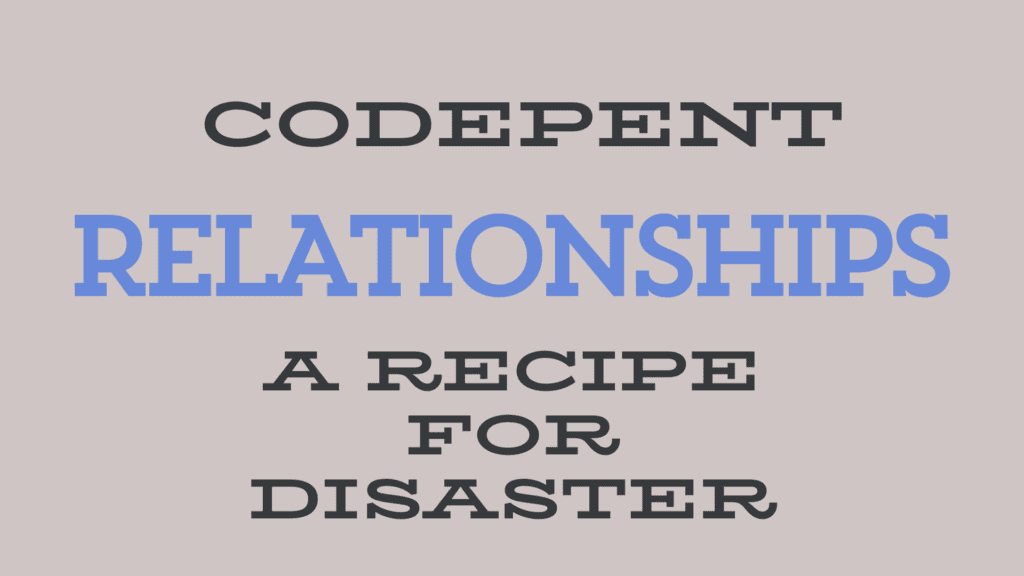The Codependent Tango: Are You Locked in an Unhealthy Dance?
Are you constantly putting your partner’s needs before your own, to the point where you’ve lost sight of who you are? Do you feel like you’re walking on eggshells, afraid that the slightest misstep will unleash chaos in your relationship? If these experiences resonate with you, you may be entangled in the exhausting and painful web of a codependent relationship with codependent behaviors.
Codependency is a complex dance of two people locked in an unhealthy, imbalanced dynamic. One partner, the “giver” or “caretaker,” compulsively sacrifices their own needs, desires, and sense of self to cater to the other, the “taker.” The giver’s self-worth becomes tied to how much they’re needed, while the taker grows increasingly reliant on the giver to meet their every need, often avoiding personal responsibility.
In this toxic tango, boundaries blur, identities merge, and true intimacy is replaced by a suffocating enmeshment. The codependent couple becomes so intertwined that they lose sight of where one ends and the other begins, both parties displaying codependent traits.
But what causes someone to become codependent? How does this dysfunctional pattern take root in our brains and behavior? And most importantly, is there a way to break free from the chains of codependency and reclaim a healthy, fulfilling relationship – with both our partner and ourselves?
Buckle up as we dive into the neuroscience of codependency to answer these questions and chart a path towards recovery and transformation. Get ready to have your mind blown (and your relationship reborn)!
What is Codependency?
Codependency involves an imbalanced relationship dynamic where one person, the “giver” or “caretaker”, compulsively sacrifices their own needs to care for the other, the “taker. The giver derives their sense of purpose and self-worth from being needed. Meanwhile, the taker learns to rely on the giver to meet all their needs and avoids taking responsibility for themselves.
Signs You May Be in a Codependent Relationship
- Constantly prioritizing your partner’s needs above your own
- Feeling responsible for your partner’s happiness and well-being
- Losing your sense of self and identity in the relationship
- Enabling your partner’s unhealthy behaviors

Characteristics of Co-Dependent Relationships
Codependent relationships are characterized by a distinct set of signs and symptoms. Some common red flags include:
- Difficulty making decisions without the other person’s input or approval
- Constantly seeking validation and approval from one’s partner
- Feeling responsible for the other person’s emotions and well-being
- Sacrificing personal interests, hobbies, and friendships to cater to the partner’s needs
- Enabling or making excuses for the partner’s unhealthy behaviors
These dynamics create a vicious cycle where the giver’s self-worth becomes dependent on the taker’s reliance on them. The taker, in turn, grows more demanding and less self-sufficient, perpetuating the imbalance.
Psychological and Emotional Impacts
Codependency takes a heavy toll on the mental health and emotional well-being of both partners. The giver often experiences:
- Low self-esteem and a poor sense of self
- Chronic anxiety and depression
- Feelings of guilt, shame, and inadequacy
- Difficulty expressing emotions and asserting boundaries
- Burnout from constantly prioritizing others’ needs
Meanwhile, the taker may struggle with:
- Arrested emotional development and maturity
- Irresponsibility and impulsivity
- Difficulty coping with stress and challenges independently
- Substance abuse or other addictive behaviors
These impacts highlight the urgency of addressing codependency and seeking support for recovery.
Causes and Contributing Factors
Codependency often has its roots in early family dynamics and childhood experiences. Some common contributing factors include:
- Growing up with a parent who was emotionally unstable, addicted, or chronically ill
- Experiencing emotional, physical, or sexual abuse or neglect
- Being raised in a dysfunctional family system with rigid roles and rules
- Internalizing messages that one’s worth depends on pleasing or caretaking others
Certain personality traits, such as low self-esteem, people-pleasing tendencies, and difficulty with assertiveness, can also make individuals more susceptible to codependent patterns.
Recognizing these underlying causes is key to developing self-awareness and embarking on a journey of recovery and transformation.
Codependent Personality Pattern: When Codependency Becomes Pathological
In some cases, codependency can escalate into a more severe form known as codependent personality pattern (CDPP). While not an official classification in the DSM-5, CDPD is recognized by many mental health professionals as a cluster of traits that go beyond typical codependent behaviors.
Individuals with CDPP often exhibit:
- Extreme difficulty making decisions without others’ input
- Severe anxiety about being alone or abandoned
- Intense fear of rejection and criticism
- Chronic feelings of guilt and responsibility for others’ actions
- Unhealthy tolerance for mistreatment or abuse
CDPP is thought to stem from profound childhood trauma or attachment disruptions that deeply impact personality development. As a result, people with CDPP struggle to form a stable sense of self and rely on others to fill the void.
Support for CDPP often involves long-term therapy to address the underlying trauma, challenge distorted beliefs, and build healthier coping and relationship skills.
If you suspect you or a loved one may have CDPP, seeking professional support is crucial. With the right help, it is possible to overcome even the most entrenched patterns and reclaim a sense of self.

The Roots of Codependency
So how do we end up in these unhealthy relationship patterns? The roots often trace back to childhood trauma. If you had a parent who was emotionally unstable, addicted, or unavailable, you may have learned to suppress your own needs to maintain attachment and avoid abandonment. This wires the brain for codependency.
The Neuroscience of Codependency
Neuroscience sheds light on what’s happening in a codependent brain:
The Reward Center
fMRI studies show that the same reward centers that light up for drug addiction are activated when a codependent focuses on their partner. Caretaking floods the brain with feel-good hormones like dopamine and oxytocin. The codependent becomes addicted to being needed.
The Fear Center
Additionally, the amygdala, the brain’s fear center, goes into overdrive at the threat of conflict or disconnection from one’s partner. To avoid this distress, the giver will do anything to maintain the relationship, even at great personal cost. The taker exploits this, and the toxic cycle continues.
Comparison with Healthy Relationships
In contrast to codependent enmeshment, healthy relationships are characterized by interdependence – a balanced, reciprocal partnership where both individuals can rely on each other while maintaining their own identities and autonomy. Some key features of healthy, interdependent relationships include:
- Open, honest communication and emotional expression
- Respect for each other’s boundaries, needs, and desires
- Shared decision-making and problem-solving
- Pursuing personal goals and interests outside the relationship
- Mutual trust, support, and empowerment
By understanding these differences, individuals can begin to envision and work towards building healthier, more fulfilling connections.
Rewiring the Codependent Brain
Breaking free of codependency requires rewiring these deep-rooted brain circuits. That’s where neuroscience-based coaching comes in. By working with the brain’s innate neuroplasticity, it’s possible to establish new, healthier neuropathways.

Neuroscience-Based Techniques
Neuroscience-Based Techniques
Neuroscience-based techniques such as cognitive reframing and boundary setting can lead to significant changes in brain function and structure, helping to address co-dependent behaviors:
- Changing Neuropathways: Engaging in activities that challenge existing thought patterns can help rewire the brain. By intentionally creating new, more advantageous neuropathways, individuals can shift from habitual co-dependent behaviors to healthier, more adaptive responses. This process involves actively seeking new perspectives and experiences that reinforce self-worth and autonomy.
- Cognitive Reframing: This technique involves altering negative beliefs and thought patterns. For example, changing the belief “I’m nothing without my partner” to “I’m a worthy individual” helps forge new neural networks. This shift in perspective encourages healthier self-esteem and independence, reducing reliance on others for validation.
- Boundary Setting: Learning to set and maintain personal boundaries teaches the amygdala, the brain’s center for emotional processing, that it’s safe to be independent. This practice reduces the fear and anxiety often associated with being alone and promotes a sense of security and self-reliance.
With consistent practice, these techniques can weaken the neural circuits associated with co-dependent behaviors. Over time, individuals can develop new, empowered ways of relating to others, transforming their relationships from dependency to mutual respect and support.
Breaking Free from Codependency
By harnessing your brain’s capacity for change, you can break the chains of codependency and reclaim the fulfilling relationships you deserve. If you’re ready to rewrite the script on codependency, neuroscience-based coaching lights the path to freedom. You have the power to evolve beyond limiting patterns and thrive – one neuron at a time.













